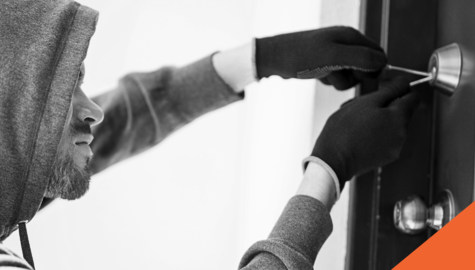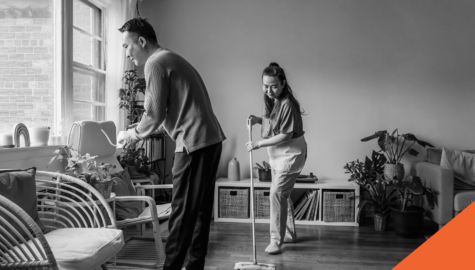How Do Insurance Companies Determine your Home Insurance Rates?
Wednesday, 16 August 2023
Purchasing a home is one of the single largest investments and assets in many people’s lives. With that in mind, securing a home insurance package with the best protection for your home is a must. Given the current state of interest rates, seeking out an insurance policy at the lowest price is something new homeowners are doing more and more to save some extra cash. While this sounds great in theory, choosing a plan with a lower premium may not always provide you with the best coverage. In this blog, we will look at the different factors that determine the cost of your premium.
Here are the top 13 factors that will impact the price of your home insurance:
- Replacement cost
- Neighbourhood
- Usage
- Electrical System
- Plumbing
- Roofing
- Heating System
- Renovations & Home Improvements
- Claims History
- Deductible
- Proximity to Fire Hydrant
- Pets
- Special Discounts
1. REPLACEMENT COST
The replacement cost refers to how much it would cost to rebuild your home. In the event of a total loss of your home, your home insurance provider will pay to rebuild your home up to the limit on your policy. Factors like size, labour costs, and construction materials can affect the cost of rebuilding your home. Some insurance companies offer a policy with a guaranteed replacement clause, which ensures that the insurance company will rebuild your home even if the cost to rebuild exceeds the replacement cost in your policy.
2. NEIGHBOURHOOD
Each neighbourhood has its risk factors that determine the rates for homes. Home insurance providers have access to statistics on the claims across their jurisdictions and record fire, storm and thefts in each area, which then affect the rates. Other factors such as nearness to water, living close to an airport, or being in a neighbourhood with a higher crime rate will all classify your home as a higher risk.
3. USAGE
Be sure to advise your insurance broker if you run a home-based business. While this may increase the cost of your house insurance, it is essential to disclose this to ensure you have liability coverage for a loss that may occur due to the operation of your business. Depending on the size and nature of your business, you may be able to add an endorsement to your policy to cover your business – or if your business needs are more complex, you may need to purchase a separate Commercial Insurance policy.
4. TYPE OF ELECTRICAL SYSTEM
Before you buy a home, it is advisable to have a certified electrician inspect your wiring to ensure it’s safe. Older wiring systems can be dangerous and increase your insurance costs. If your home is older than 30 years, you may need your wiring replaced with copper before you can get insured. If your home has knob and tube wiring, there is a higher risk of overloading and catching fire. Consider installing a breaker system to increase the safety of your home.
5. TYPE OF PLUMBING
Newer homes use plastic and copper pipes, which are more durable, hygienic and resilient to changing weather conditions. On the other hand, older pipes, such as lead or galvanized steel pipes, can leach dangerous toxins into your water and perform poorly in cold winters. New plumbing will lower your house insurance rates, improve the water quality and help increase your home's overall value!
6. CONDITION OF YOUR ROOF
The weather will undoubtedly put your roof to the test as well. Roofs over 15 years old will likely need repairs to reduce the risk of damage from water and wind. Insurance companies typically only pay for the depreciated value of a roof as opposed to the total replacement value. Materials used to build your roof can also affect your insurance costs.
7. HEATING SYSTEM
You may pay more for house insurance if your home has oil and wood-burning heat sources, as they increase fire risk and carbon monoxide poisoning if they are not properly installed and maintained. Updating your home’s heating system to forced air, gas, electric heating, or newer environmentally friendly technology can help you save on insurance.
8. RENOVATIONS AND HOME IMPROVEMENTS
You should always inform your insurance broker or insurance company if you make any changes to your home. Even though your premium is paid annually, this can change throughout the term if there are changes to your home. Some improvements will increase the replacement cost of your property (i.e. kitchen renovations, finishing the basement) and will likely increase your premiums. However, some changes may reduce your risk of property damage (i.e. replacing old pipes or wiring). Make sure you speak to your insurance broker to understand how your rates will change.
9. PAST HOME INSURANCE CLAIMS
Your claims history can impact your insurance rates. If you have multiple claims, the insurance company could mark you as high risk, which will not only increase your rates but also can lead to your insurance company dropping you. If this is something that is a concern to you, an insurance broker can advise as to how your claims history may impact your rates.
10. DEDUCTIBLE
One way to lower your insurance rates is to increase your deductible. Your deductible is the amount that you agree to pay on your claim. However, you should ensure that you can cover the deductible cost first. Having a higher deductible also reduces the number of small claims that you tend to make, thus lowering your claims history. Consider weighing the benefits and disadvantages of a higher deductible. It may benefit you in the short term by having that lower monthly payment, but if you do have to make a claim, it will require more money from you up front.
11. PROXIMITY TO FIRE STATIONS AND HYDRANTS
Fire can cause devastating damage to a home. Having your home close to a fire station or hydrant means the fire department can extinguish a fire faster. Therefore, less damage will likely occur from the fire and cause your insurance to go down.
If there are no hydrants within 300 meters of your home or a fire station within 8km of your home, building a nearby pond can act as an emergency water source. In some instances, it can add to the value of your property. Similarly, installing a fire alarm system, smoke detector, and carbon monoxide detectors can help reduce your premium for some insurance companies.
12. PETS
Did you know that having a pet may impact your insurance rates? This is because almost 50% of all dog bites occur on the owner’s property. Dog breeds that are deemed aggressive may require additional coverage. Homeowners may be required to sign liability waivers for dog bites or require their dog to enroll in behaviour classes. Exotic pets, such as spiders and snakes, can influence your insurance policy. It’s important to know that homeowners caught with illegal pets are at risk of having their policy cancelled.
13. SPECIAL DISCOUNTS
Another way to reduce your insurance premiums is to see which special discounts are available. Installing home security systems that detect break-ins and fires can make you eligible for saving opportunities. Ask your broker to see if there are discounts that apply to you. Some examples include university graduate programs, professional designations, over 50 and if you have no claims. Most companies will also provide discounts if you bundle home and auto insurance with them.
Finding home insurance that is competitively priced with sufficient coverage should be at the top of any homeowner’s wishlist. If you are in the market for a new policy or have questions about your current premium, a BIG broker can help. Visit us online to request a quote, or contact your nearest branch today.



